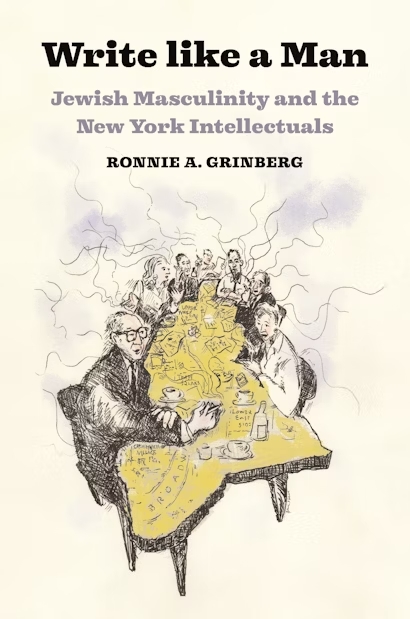Grinberg’s central argument, that “secular Jewish masculinity” dominated the worldview of the New York Intellectuals, is where the book fails to persuade. To begin, Grinberg inappropriately calls her master concept an ideology. The ideology of secular Jewish masculinity she repeats like an incantation as if to jackhammer in a conceptual innovation. But secular Jewish masculinity – whatever that may suggest in reality – is hardly an ideology. Maybe it’s a style, perhaps a description of a sort. Ideologies, however, are simplifying systems that reduce complexity to a limited set of assumptions and beliefs, often to reproduce a dominant social power. Secular Jewish masculinity, a confection divined by Grinberg herself, is retrospectively imputed to the New York Intellectuals. But ideologies don’t emerge through imputation. The book’s elemental flaw is in assuming secular Jewish masculinity to be a coherent perspective.
If anything, the New York Intellectuals’ weltanschauung, or view of life, was an adherence to ardent writing and the fructifying convergences in politics and culture. Sure, many of the members were Jewish but Jewishness was hardly primary; often it was ancillary. That one’s tough-minded Jewishness could be causally linked to Talmudic disputation is unconvincing – as culturalist readings often are. Several of the New York Intellectuals laboured to transcend the (“emasculated” Grinberg writes) shtetl mores of their parents and perhaps this inspired a more “masculine” pose. Who knows, really.
A different explanation, unconsidered by Grinberg, is that there never was any groping by the New York Intellectuals for full-on assimilation into American life. There were no attempts to pass as non-Jewish or squelch one’s identity (literary critic Lionel Trilling might be a partial exception). In his 1951 classic A Walker in the City, Alfred Kazin put it like this: “There was something grand and austere in it that confirmed everything I had felt in my bones about being a Jew: the fierce awareness of life to the depths, every day and in every hour: the commitment: the hunger.” But the idea that secular Judaism defined the New York Intellectuals’ group identity is a misreading. Central to the New York Intellectuals was a politics awash with the hurly burly of leftism, anti-fascism, anti-communism, and later neoconservatism, and an artistic and literary culture that trumpeted the avant-garde. Being Jewish was little more than an ascriptive cultural reality.
Grinberg goes on to assert that the Jewishness of the New York Intellectuals was transmuted into a “secular masculine ideal”. “Cerebral masculinity,” she claims, was commonplace among the group, men or women. Masculinity, for Grinberg, seems to connote swagger and unsentimental writing, and few will question the pugnacious behaviour of Norman Podhoretz or the pugilistic bravado of Mailer, their muscular prose and self-regard an extension of their personality. But in what ways is Kazin’s literary criticism or Mary McCarthy’s novels or essays masculine in any reasonable sense of the term? Why is it not just strong, trenchant writing?
